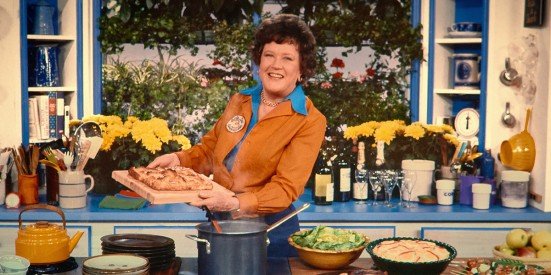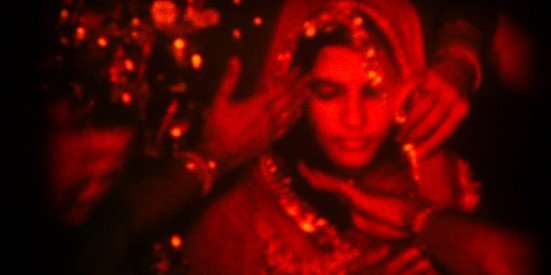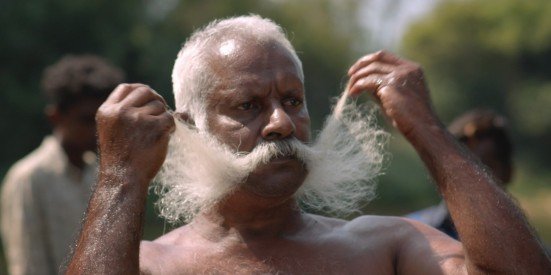While Toronto has yet to recover from the effects of the pandemic, the courageous efforts of TIFF 2021 organisers to restore normalcy should be applauded. Naturally, because of potential safety issues, much of TIFF was brought online with the glamourous events kept to a minimum.
Amongst some of the events was a Q and A screening for Scarborough and the Tribute Awards. We also have upcoming interviews with Lucy Tulugarjuk from the best Canadian short film Shaman’s Apprentice, Mourad Zaoui from The Forgiven, which also stars Ralph Fiennes and Jessica Chastain and Amil Shivji from Tug of War. In the meantime, here are some of the films Minority-Review’s Swati Sharan watched at the festival:
Last Night in Soho 4/5

Starring: Thomasin Mackenzie, Anya Taylor-Joy, Diana Riggs
Directed by: Edgar Wright
Eloise (Mackenzie) is a modern-day student who has come from rural England to London to study fashion designing. Eloise is obsessed with the 1960s and finds an old-style garret in the Soho district of London to rent. She eventually discovers that, at night, her place becomes a portal to the 1960s period of the Soho district and she becomes entwined with the life of a woman named Sandy (Taylor-Joy) from that period. Every night it is as though Eloise is falling into this time period and mirroring Sandy who seems to have lived there before.
It is as though Eloise’s soul leaps into Sandy’s body when this time slip happens. So, if something has happened to Sandy, it is as though it is happening to her. And yet we see Eloise standing as an observer to this as well. Sandy was an aspiring singer trying to make it big. Her glamorous life seems so fascinating to Eloise. By day, Eloise comes out inspired with great 1960s designs. Eventually though, Eloise starts experiencing disturbing happenstances. But she doesn’t know who to ask for help or how to find her way out of this.
Known for light horror films like Shaun of the Dead, which also pokes fun at popular culture, Edgar Wright has dared to make this cross-genre film. He has dared to not be confined to one kind of genre. The film explores a myriad of dimensions. It is exploring time slipping. It is examining the effects of recreating horror through a traumatised energy. It is projecting the idea of leaping into another person’s body from another time period (It reminds you of Scott Bakula’s series Quantum Leap from the ‘90s). It is also displaying the idea of what desis call a ruhani rishta, or a person making an energetic attachment with another soul and therein picking up on things about that soul through their energy. There is also the aspect of psychic phenomenon and receiving visions in the night. The film is also a comment on how sometimes we glamorise the past when really it may not have been ideal. Now for those who are into pure horror, they may come out a bit disappointed. But if you are willing to go along on this journey of multi-dimensions, you will come out mind blown.
Scarborough 3/5

Starring: Liam Diaz, Essence Fox, Anna Claire Beitel, Felix Jedi Ingram Isaac, Ellie Posadas, Cherish Violet Blood, Conor Casey, Aliya Kanani
Directed by: Shasha Nakhai
Scarborough is a fictional story based on real people that has been made in a documentary style. Scarborough is based on the book by Catherine Hernandez. The objective of the film seems to be a descriptive one to show what life may be like for some people. Scarborough is a pocket of Toronto that has long been haunted by crime and gang violence. It has also been home to a lot of Toronto’s ethnic minorities in many low paying jobs. The film centres around a literacy centre for kids in what has been a low-income area. Within this realm, we are candidly shown the inter-play of race in a way that a lot of Canadian dramas don’t do.
We are shown people with different scenarios. There’s an immigrant running away from domestic abuse and dealing with a child with special needs. Another immigrant struggles to raise her kid in a more gender fluid way. One parent is struggling with drug abuse, while another engages in child negligence and abuse. We have an immigrant storekeeper struggling to keep ruffians away. We see friendships between different immigrant groups in this struggle to survive on foreign land and burgeoning expenses and the lack of extended family. In the middle of all this is a social worker who is struggling to not have her sense of compassion be seen as a weakness. She is strongly challenging mainstream norms of social work and trying to reach out to these families as best as she can. She sees the people she works with as friends and not clients.
While some of the film borders on a lot of stereotypes, it also forces us to confront those feelings we have of another race or ethnic group that we tend to hang on to. And yet, some truth may lie in those stereotypes. But then the screenplay takes things a step further subtly to show us why certain unfortunate stereotypes exist. Whether we choose to challenge some of the displayed notions is perhaps up to us. All in all, Scarborough definitely provokes you into initiating a conversation on this very topic that we as Canadians may avoid.
It would have been nice to see more full-scale development of a couple of stories rather than having several characters shown in glimpses. Or it might have sat better as one film split into several vignettes with perhaps the Literacy Centre at its core. It could have been a bit like If These Walls Could Talk with Cher and Demi Moore. Hats off to the talent for a blunt expression of life in Canada through the lens of struggling visible minorities, which we don’t see enough of though Toronto and the surrounding areas are likely 50% non-white and hold at least one-fifth of the country’s population.
Julia 4/5

Directed by: Julie Cohen, Betsy West
Julia Child is to North America what Sanjeev Kapoor may be to India. These two chefs changed the cooking show landscape of their countries through television by making the extraordinary into the most accessible. This documentary takes us back to pre-World War II days to show how and why Julia was so significant.
Child came from an upper middle-class family from the New England area of the U.S. She studied to be a chef in a male-dominated Chef school in Paris when her husband was working there in the 1950s. As America became more industrialised and fast-paced, frozen and tinned foods were predominantly being sold in supermarkets. Americans were fast losing the notion of home-cooked, fresh food; such foods would take too long to make. What Julia as the then modern American woman did was try to make fresh French cuisine accessible to Americans through her English recipe books. Her take was different from many others before her. Food was not meant to just be eaten. It was meant to be celebrated and savoured.
According to her, it was possible to be a modern woman and enjoy fresh foods without slaving away at the stove. She then went on to TV shows and news channels to do cooking demos, which were widely watched by the American public. At this time, it wasn’t as common to see cooking show hosts on TV. The chef’s ultimate mission became to pour zest into the mundane and ordinary aspects of American cooking. Even a dish like a hamburger needed to be approached with a huge amount of finesse.
Cohen and West have been successful in re-creating Julia’s time period through archival footage and interviews with those who knew her. The directors have tapped into three different aspects here: One is the evolution of cooking shows in America. The other is highlighting women’s changing roles amidst industrialisation. The third is Julia’s love story with her husband Paul. If you are a food lover, this film is well-worth savouring.
A Night of Knowing Nothing 3/5

Directed by: Payal Kapadia
The film is an examination of student movements in India in the last 5-6 years told from the eyes of a jilted lover. The story is based on some discarded letters found in the Film Institute of Pune written by a girl who identifies herself as L. These letters seem as though they were letters written to an ex-lover which somehow never got mailed and were left behind in the institute. It’s as though this lover is a silent confidante with whom L shares everything even though she was dumped by him. While there are times where she wishes the lover took more of a stand to be with her and she expresses as much, she continues to keep writing to him about major student protests or campaigns. As she does so, we get to see real life footage of the events in question. Through these letters, the film is highlighting issues such as dissent, nepotism, casteism, inter-caste marriages, economic or social privilege and religious fundamentalism.
Though the film cannot be taken from a journalistic point of view because it’s from only one point of view, it is still definitely worth the watch. The film is very evidently a call to appeal for a wider spectrum of tolerance and inclusion. There is a beautiful weaving of montage between real events and somewhat dramatised events. The film could have been shorter by half an hour to keep it more focused and engaging rather than dragging it out. Overall though, the film stands as a visual collage of socio-political memories that Kapadia has crafted together.
Paka (River of Blood) 4/5

Starring: Basil Paulose, Vinitha Koshy, Athul John, Jose Kizzakhan
Directed by: Nithin Lukose
The film is titled Paka (Malyalam) or The River of Blood because of the bodies that get thrown into the river every time a conflict erupts between two feuding families. But unlike the dramatic heights of a Qayamat Se Qayamat Tak, this tale is told in a more matter of fact way without all the gore. Were it not for the dramatic tension, one would likely label the film a documentarian style of observation of what happens between two warring families over generations in the Wayanad district of Kerala. The story is based on stories Lukose has heard from his grandmother about the conflicts that have gone on for generations between people from central Kerala and locals in Wayanad.
Anna (Koshi) and Johny (Paulose) are a couple from these warring families who are planning to get married when Johny’s uncle Kochepu (Kizzakhan) is released from jail after ten-years. Kochepu was convicted earlier for an accidental killing during a conflict in Anna’s family. Had he not returned, the hatchet between the two families may have been buried and Anna and Johny may have been able to get married harmoniously. But Kochepu’s return has directed Anna’s family’s feelings towards revenge. And so begins the cycle of violence. Yet the hope in Anna and Johny’s hearts linger for burying the past and moving on. Can they do so or will they be dumped in the river next?
The film reflects the idea of dragging an outdated conflict onto present generations. And we ask why when the original people in question who had the conflict are no longer with us, do these conflicts drag on? Especially when society or circumstances have changed. At what point do our forefathers’ conflicts cease to be ours? Why besides being the next potential one in line to be killed does it become hard for two people from feuding families to pursue wedlock? Is the hate that has been programmed for the ‘other’ too big an obstacle to allow for love to last?
Produced by Anurag Kashyap, Paka is one of the rare films from India to have featured at TIFF 2021. The cinematography is spellbinding with the backdrop of the lush backwaters of Kerala. While the film is not intended for the faint-hearted, it thrills with Lukose’s ingenious spin on what could otherwise have been a stalemate. Foreshadowing and irony have been cast by the wayside and the viewer is taken on a trip of the unpredictable.



0
comments